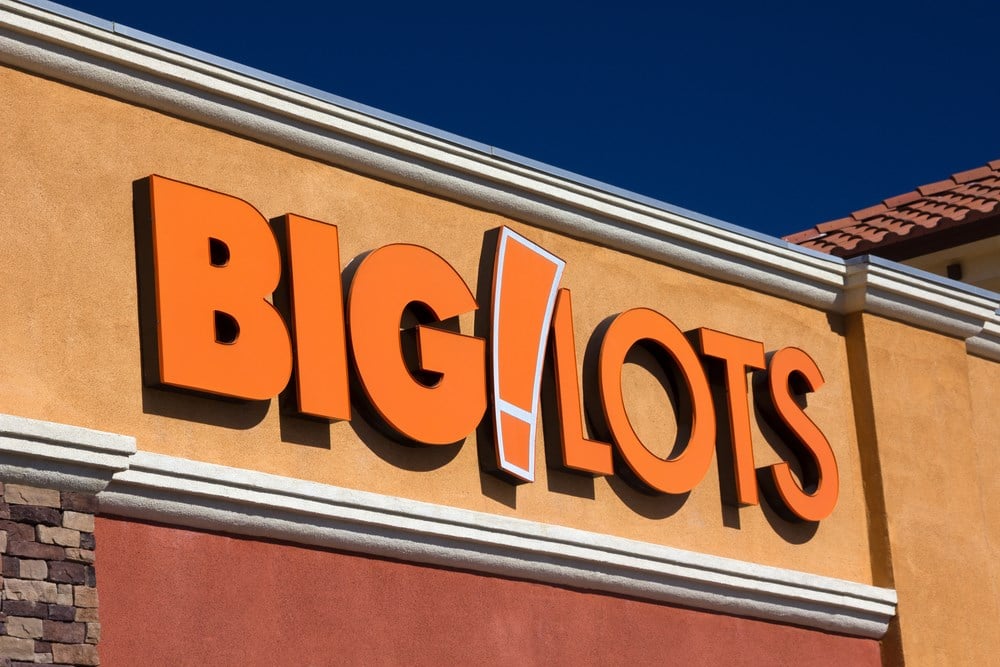
As Bed Bath & Beyond (NASDAQ: BBBY) goes through the painful and defeating process of declaring bankruptcy, investors who have a financial - and often emotional - vested interest in other similar companies are feeling the heat of what could happen when things go wrong. Big Lots (NYSE: BIG) shares are sliding aggressively during the opening of Friday's trading session, declining by as much as 18.5% after the company released its first quarter 2023 earnings results; markets express that they are not happy with what the company has achieved during the past twelve months.
But, as the analogy goes, turning a tanker ship takes infinitely more effort than turning a smaller speedboat, and as Big Lots becomes a smaller company in both a market capitalization and fundamental basis, management may find it easier to fulfill their turnaround initiatives.
Everything within the company's press release points to an alarming rate of slowing down, from net sales and margins to net profitability and liquidity; management is taking measures to navigate the challenges imposed on the company the best way they can. Unfortunately for investors, these measures include a future filled with uncertainty, volatility, and even a dividend payout suspension to harness as much liquidity as possible to ensure the business lives to see another day. Nevertheless, analysts still believe a scenario exists in which Big Lots recovers, whether internally aided or externally injected into a high double-digit upside target.
The Bad and the Ugly, any Room for the Good?
The retail industry carries a massively followed vital performance indicator (KPI), which analysts and investors follow religiously to get a pulse on any company operating within the sector. Comparable sales growth and declines are the lifeblood of the industry, and Big Lots are falling short in this regard by posting alarming rates of decline and placing doubt in every investor's mind. Though still an industry-wide issue, comparable sales declining were a bit rougher for Big Lots, as the company reports an 18% drop year over year, attributed to challenging demand conditions and tight supply chains creating product shortages.
Sales were not the only performance metric to see dire issues; margins contracted across the board to deliver a sour blow to shareholders. Gross margins declined from 36.7% in 2022 to today's rate of 34.9%, and operating losses grew larger by nearly $100 million. Steepening losses can only partly be attributed to the macro environment, with a large contingent of the responsibility needing to be placed into management's hands.
Given that other operators in the industry, such as Williams-Sonoma (NYSE: WSM), are experiencing similar issues and yet have NYSE: WSM" target="_blank" rel="noopener">sustained profitability and stock price stability. The furniture segment of the company delivered the most significant blow to the slowdown, posting a comparable sales decline of 27% over the twelve-month period, which management credits to furniture shortages as well as the closure of one of their most prominent vendors in November of 2022.
At least management is not trying to sell an empty promise to investors as executives guide markets into an even darker remainder of 2023. Outlooks include a further decline in comparable sales to fall within the high teens and gross margins to remain compressed similarly to the year's first quarter. In addition, by marking down existing inventory to stimulate sales, the company's book value has taken a similar adverse effect.
Inventory levels declined by 18.8% to end the quarter at $1.09 billion; even more markdowns are expected as the company seeks to monetize its asset base to get through the following slowdowns in the sector and the broader economy.
One Last Hail Mary
Big Lots analyst targets suggest a 141% upside from today's prices, even after the company announced that it would suspend its dividend payments to investors as it faces cash flow issues and needs to raise liquidity levels. These optimistic scenarios may stem from the cost-reduction and profit-seeking activities management looks to take on during the remainder of the year and well into 2024.
Starting with shipping and freight costs, a rate of expense that even ZIM Integrated Shipping Services (NYSE: ZIM) expects to lower, Big Lots may see a new light of day soon enough. A mysterious "External Partner" has identified an opportunity to add over $200 million to the company's bottom line, as expenses can be significantly reduced across operations and merchandising networks.
As the stock trades at its all-time low price, its valuation follows. Since there are currently no earnings to speak of, a valuation multiple can be assigned to what remains of the company's book value. With a current 0.2x multiple, investors can acquire the whole business for as low as the value of its cash and inventory on hand.
Not even the threat of bankruptcy during the 2008 financial crisis was enough to bring this multiple to today's lows; those investors willing to have a couple of sleepless nights in return for retirement-worthy returns could count on a turnaround play and owning the underlying at cents on the dollar.






